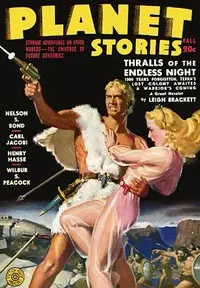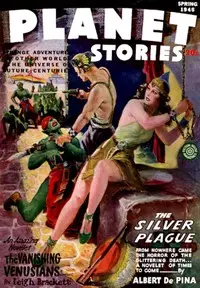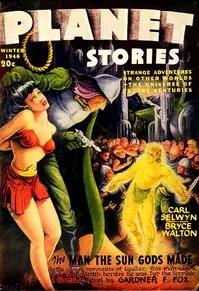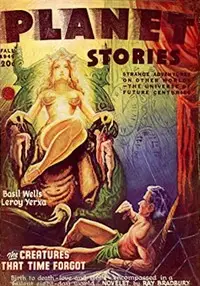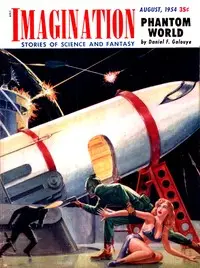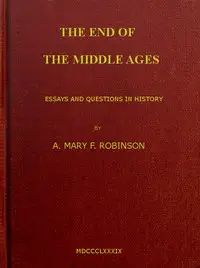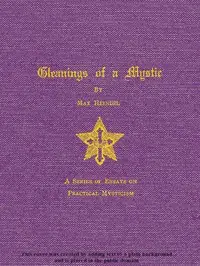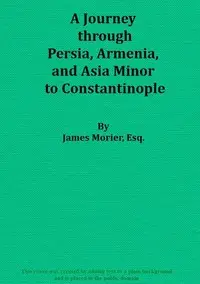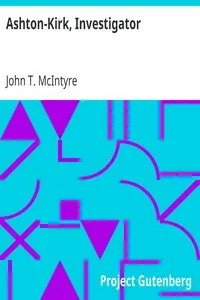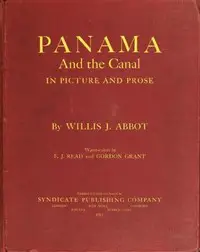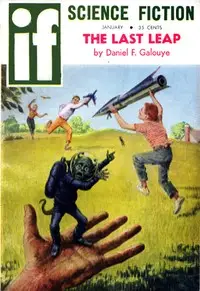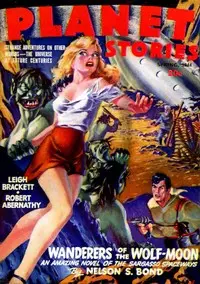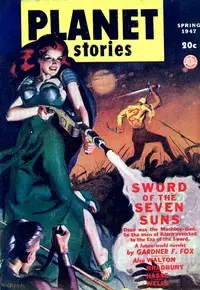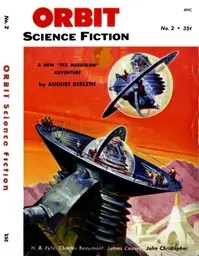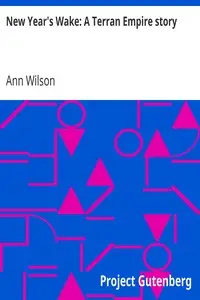"Doctor Universe" by Carl Jacobi is a science fiction novella published in the early 1940s, reflective of the Golden Age of Science Fiction. The story revolves around themes of power, perception, and the consequences of technological misuse while exploring the relationships among various extraterrestrial beings. It combines adventure, humor, and a critique of authority under the backdrop of a vibrant, imaginative universe. The narrative follows Grannie Annie, a renowned science fiction novelist, who discovers that her latest book may have inspired a nefarious plot involving a substance called Green Flames. This substance has the power to influence the minds of those exposed to it, fostering a longing for leadership and intolerance. Together with her old friend Billy and a prospector named Ezra Karn, they journey through the treacherous terrain of Venus to locate a spaceship filled with Green Flames, seeking to prevent the villainous Doctor Universe from harnessing its influence over the populace. As they confront invisible threats and engage in clever schemes to outsmart their adversaries, Grannie Annie's wit and determination shine, leading to a climax that blends humor with a critical defeat of the emerging dictatorship. The story culminates in a satire that emphasizes the importance of individual liberty and the absurdity of blindly following authority. (This is an automatically generated summary.)
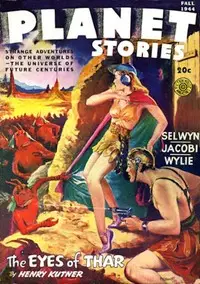
Doctor Universe
By Carl Jacobi
"Doctor Universe" by Carl Jacobi is a science fiction novella published in the early 1940s, reflective of the Golden Age of Science Fiction. The story...
Carl Richard Jacobi was an American journalist and writer. He wrote short stories in the horror and fantasy genres for the pulp magazine market, appearing in such pulps of the bizarre and uncanny as Weird Tales, Ghost Stories, Startling Stories, Thrilling Wonder Stories and Strange Stories. He also wrote stories crime and adventure which appeared in such pulps as Thrilling Adventures, Complete Stories, Top-Notch, Short Stories, The Skipper, Doc Savage and Dime Adventures Magazine. Jacobi also produced some science fiction, mainly space opera, published in such magazines as Planet Stories. He was one of the last surviving pulp-fictioneers to have contributed to the legendary American horror magazine Weird Tales during its "glory days". His stories have been translated into French, Swedish, Danish and Dutch.

